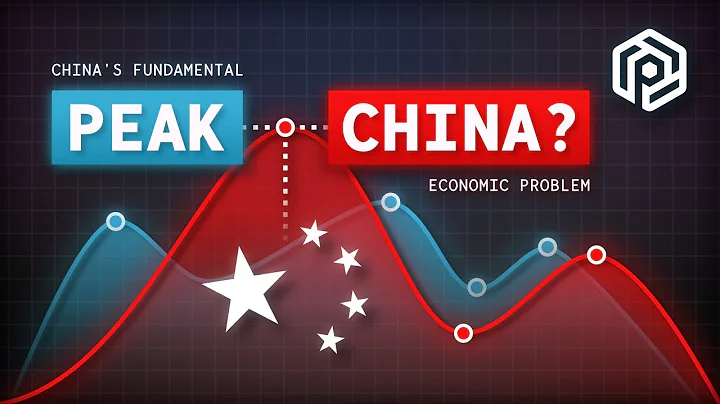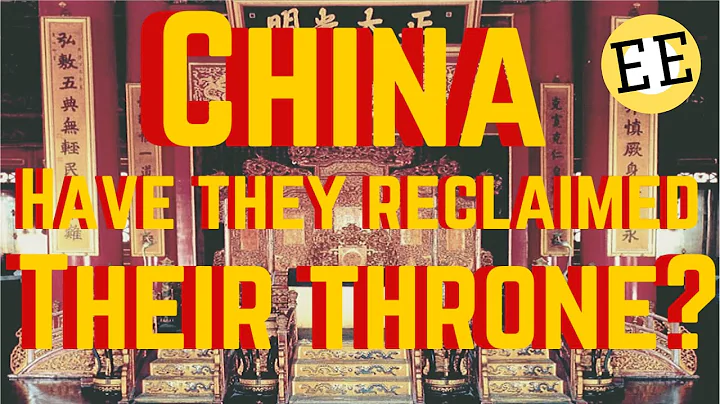There have been many reforms in China's history, but they basically ended in failure. The "Shang Yang Reform" that occurred during the Warring States Period can be said to be the only successful reform recorded in the annals of history for the first time in Chinese history. It is called the reform of the past by historians and social reformers. The "magic" and the "miracle".
Shang Yang's reform was unprecedented in history in terms of its wide scope, deep content, large scale, and strict methods. After the reform, the Qin State's economy developed and its military strength became stronger, making Qin develop from a vassal state that no princes in the Central Plains wanted to pay attention to to the most powerful centralized state in the late Warring States period. He was the first of the Seven Heroes of the Warring States Period, and laid a solid foundation for the subsequent unification of China by Qin Shihuang.

And Shang Yang, who presided over this reform, was remembered by history and became the first person to succeed in the reform in history and the main representative of Legalism .
However, Shang Yang's ending is really surprising and regrettable.
In 338 BC, Shang Yang was falsely accused of treason. He was defeated and died during the counterattack. His body was transported back to the Qin State. He was also tortured by being split into chariots. His body was divided into pieces with five oxen and displayed to the public. It is also said that he was quartered with five horses. , the tragedy cannot bear to be witnessed.
What is Shang Yang's crime? Did he end up with such a tragic end? Besides, the person is already dead, so why dismember his body? How much hatred is there? Who did this?
This question seems a bit unnecessary, because everyone knows that it was King Huiwen of Qin Ying Si who ordered Shang Yang's body to be cut into pieces. However, Ying Si has not yet claimed the title of king.
Why did Ying Si have to kill Shang Yang? Some people say that it was because Shang Yang offended him during his political reform, and that he killed Shang Yang to avenge his private revenge. However, this understanding is too narrow, because Ying Si's posthumous title is "Hui Wen", and these two words are not easy to come by. If Ying Si really killed Shang Yang in revenge, how could he be worthy of the title "Hui Wen"?
Of course, we cannot deny that Shang Yang's death also had elements of Ying Si's personal revenge. However, Ying Si's killing of Shang Yang was mainly based on the political situation of the Qin State at that time and his own political interests.

Shang Yang was originally a nobleman of the Kingdom of Wei. His original name was Gongsun Yang. Sima Qian said that he was born to the concubine of the King of Wei. Bastard. After the death of Gongshu Zuo, he was no longer used by King Wei of Wei. He later voted for Duke Xiao of Qin and implemented reforms with the support of Duke Xiao of Qin. His allusions of "building trees to win trust" or "moving trees to build trust" came from the beginning of his reform.
This approach of obeying orders and winning the trust of the people was highly praised by Wang Anshi of the Northern Song Dynasty, and he wrote a poem about it:
Since ancient times, the people have been driven by trust and sincerity, and a word has made a fortune.
In ancient and modern times, Shang Yang has always been the best, and Shang Yang’s orders must be implemented.
On this basis, Shang Yang issued a new law, but the content of the new law surprised the people, because under the provisions of the new law, the living habits and customs formed since ancient times had to be changed, which made them extremely uncomfortable. Therefore, one year after the new law was implemented, "the people of Qin all said that thousands of people were able to follow the initial order" ("Historical Records·Biography of Shang Jun").
What made Shang Yang even more troublesome was that the prince actually broke the law at this time. This prince was Ying Si. What crime did Ying Si commit? There is no mention in "Historical Records". Some sources say that Prince Yingsi, instigated by his two teachers, Gongzi Qian and Gongsun Jia, armed himself with weapons, injured people in the palace, gathered people to fight, and sent people out of the palace to rob people's property on the streets.
Shang Yang believes that this is a blatant provocation to the new law. If the new law is not severely punished, it will be difficult to further implement the new law. So Shang Yang said: "If the law doesn't work, you must violate it from above." It means that the reason why the new law cannot be implemented smoothly is because someone at the top violates the law. If there is no punishment, how can the people be peaceful?

So Shang Yang "will punish the crown prince", but considering that the crown prince Ying Si "is the heir and cannot impose punishment", he let his two teachers Gongzi Qian and Gongsun Jia suffer the punishment on their behalf.The next day, all the people of Qin implemented the new law. Later, when Gongzi Qian broke the law again, Shang Yang tortured him and cut off his nose. As soon as this move came out, the palace was in an uproar at first, but then became solemn again. Gongzi Qian and Gongsun Jia were so frightened that they did not dare to go out again.
They all say, "beat a dog to see its owner." This dog is not an ordinary dog, and the owner is not an ordinary person. From then on, Prince Yingsi, Prince Qian, and Gongsun Jia harbored a grudge against Shang Yang, and the feud was forged.
If this is the case, it is really unjustifiable in terms of legal and moral principles for Ying Si to kill Shang Yang after he succeeded to the throne. However, with the successful implementation of the new law, the Qin State became more and more powerful, and Shang Yang was soon promoted to Daliang Zao. This was the highest title in the Qin State during the reign of Qin Xiaogong, and he controlled military and political power.
Shang Yang actually became Qin Xiaogong's prime minister, so he persuaded Princess Qin Xiao to attack Wei. In this battle, Qin won a complete victory. Shang Yang used a trick to capture not only Wei's general Gongzi Yan, but also all 80,000 Wei troops, chariots and horses were captured by the Qin army. King Hui of Wei was forced to donate his land in Hexi and moved the capital to Daliang (now Kaifeng, Henan).
This battle was of great significance to the Qin State. Not only the emperor of Zhou sent people to bring sacrificial meat to Qin Xiaogong, but also the princes of the Central Plains came to congratulate him. Qin became a powerful country in the Central Plains.
Shang Yang accomplished this great feat. Qin Xiaogong greatly rewarded him and granted him fifteen cities in the land of Shang and Yu. He was titled Lord Shang. From then on, the title of Shang Yang replaced the name of Gongsun Yang.

At this time, Shang Yang was at the peak of his power, and his career in life had reached its peak, and he actually became the king of Dinan in his fiefdom. However, as Shang Yang's power and status continued to rise, he also began to move towards a tragic ending step by step.
Shang Yang was prime minister of Qin for ten years. Although Qin became increasingly powerful, he was also resented by many of the emperor's relatives. Shang Yang used "hegemony" in his reform. He relied on strict criminal laws to ensure the success of the reform. He was neither close to the people nor humane. For example, he punished the prince Yingsi, punished the prince's division, deprived the princes and nobles of their privileges, etc. Naturally, these people hated him deeply, and they were all watching in secret, looking for opportunities to take revenge.
Especially the incident of Shang Yang killing more than 700 people who criticized the new law at the Weishui River aroused people's resentment against him. This laid hidden dangers for his subsequent tragic ending. However, Shang Yang had the support of Qin Xiaogong behind him at that time, so these people never dared to act rashly.
If Shang Yang could retreat from the rapids and become invisible at this time, he would be full of glory and wealth in the second half of his life, and he might also be able to enjoy his old age in peace. However, he was in the cusp of the storm without realizing it, and he did not even listen to the advice of the hermit Zhao Liang. As a result, retribution came soon.
According to " Warring States Policy ", in 338 BC, Qin Xiaogong was seriously ill and wanted to give up the throne to Shang Yang before his death. Fortunately, Shang Yang knew himself and refused. In fact, Qin Xiaogong's act of abdicating the throne was not a test of Shang Yang? This shows that Qin Xiaogong was wary of him at that time, and it also gave a hint to Prince Ying Si.
Soon after, Duke Xiao of Qin passed away, and Prince Yingsi succeeded to the throne as King Huiwen of Qin. As soon as Ying Si came to the throne, Gongzi Qian and Gongsun Jia, who had been hiding at home for many years, ran out and reported Shang Yang's rebellion to King Huiwen of Qin, saying: "If the minister is too important, the country will be in danger; if the ministers are too close, the body will be in danger." ("Warring States Policy"), now even the girls in the Qin State are talking about Lord Shang's decree, but no one is talking about your decree. This is because Lord Shang is rebelling against his ministers, and your Majesty has become a minister. That Lord Shang is the king's enemy in the first place. The king should take measures against him as soon as possible.

King Qin Huiwen naturally remembered that Duke Xiao wanted to give up the throne to Shang Yang, and realized the crisis of his royal power. And those princes and nobles who had been punished also responded one after another, pointing their hatred at Shang Yang.
Shang Yang heard the news and knew that something was wrong, so he fled home overnight. After fleeing to the border crossing, Shang Yang wanted to find a hotel to stay, but because he was leaving in a hurry, he forgot to bring his documents.The owner of the store didn't know that he was Shang Yang, so he didn't dare to take him in. He said to him: "Our Lord Shang has an order. If the people staying in the store do not have documents, the store owner will be implicated and punished." Shang Yang said with a long sigh. : "Alas! The new law enacted has caused such harm. The new law was established by me, but now I will perish because of the new law."
So he switched to the Wei State. The people of the Wei State resented him for deceiving and trapping the young master Xian, which caused the Wei State to collapse. He was defeated and refused entry. Shang Yang had no choice but to sneak back to Shang, a fiefdom of the Qin State, and led his tribe to mobilize the soldiers in the city to attack Zheng Guo northward in search of a way out. After King Qin Huiwen learned of this, he sent troops to attack Shang Yang and killed him in Lianchi of Zheng State.
King Huiwen of Qin ordered Shang Yang's body to be transported back to the capital, cut into pieces with five horses and displayed to the public, and then killed Shang Yang's family.
The tragedy of Shang Yang is that he has huge power but does not know how to advance or retreat. In addition, the construction of the rule of law in Qin has been completed at this time, so the king should be the supreme ruler of the rule of law. Of course King Qin Huiwen knew that Shang Yang was not fatal, but his existence had indeed become the biggest threat to his royal power. Moreover, he never wanted Shang Yang to be used by other countries again. Therefore, he must get rid of Shang Yang.

In other words, Shang Yang could not escape death no matter what.
What is surprising is that after Shang Yang's death, King Qin Huiwen did not abolish the new law. Instead, according to the new law, he executed Shang Yang and Gongsun Jia on the grounds that Shang Yang's rebellion was unproven and that the two were framed. Killed a large number of their henchmen.
This may also be a kind of comfort to the soul of Shang Yang.





















